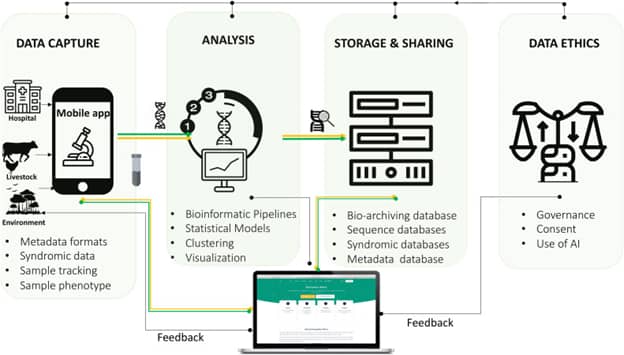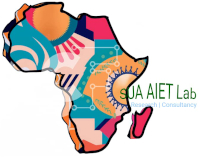
Climate change has immediate and long-term impacts on determinants of health, through the effect of either infectious disease or food insecurity. Projections indicate that the global population at risk from vector-borne diseases will increase by 220-400 million in the next century; with most of this increase predicted to occur in Africa. During the same period, water-borne diseases increase because of increase in temperatures combined with heavy runoff from agricultural and urban surfaces.
The Digital One Health approach is a concept that focuses on digital solutions that enable the use of early warning models through the adoption of smartphone and Internet-of-Things (IoTs) technologies for a rapid and timely public health response. Digital One Health has quickly established itself as a unifying construct that highlights the critical role of technology, data, information and knowledge to facilitate the interdisciplinary collaboration that One Health requires.
The role of digitalization regarding One Health and sustainable development is among the research priority in the AIET Lab. The use of remote sensing and GIS coupled with Big Data from smartphones, Internet service providers, surveillance networks, scientific databases etc. provides an opportunity to the Lab researchers to identify and predict disease hotspots, zoonotic spillovers and disease distribution through the integration of data sources (human, veterinary an environmental), machine learning, Internet of Things (IoTs) and other technologies.
The AIET Lab research focuses on the following topics:
- To conduct modelling of climate change impact on water-borne-bacterial and Aedes-borne-viral diseases using machine learning approaches in Tanzania and Africa.
- To develop locally adaptive artificial intelligence–driven early warning system for prediction and monitoring of climate-sensitive diseases
- Development of digital and patient –centric tools to monitor TB patients and promote adherence to treatment.
- Development of an AI –driven Digital One Health framework that integrate multisource data for monitoring, management and prediction of public health and facilitate decision-making

